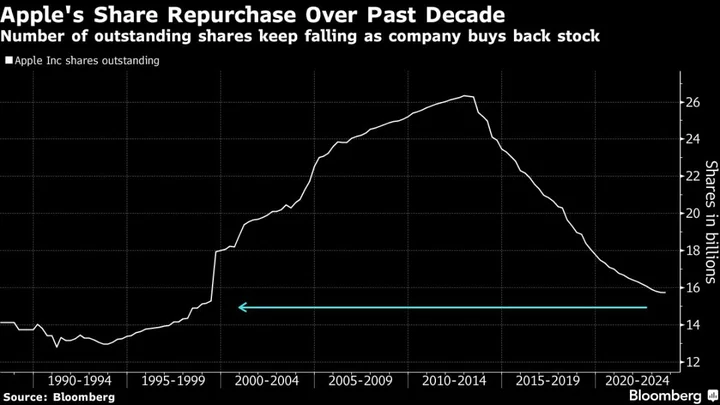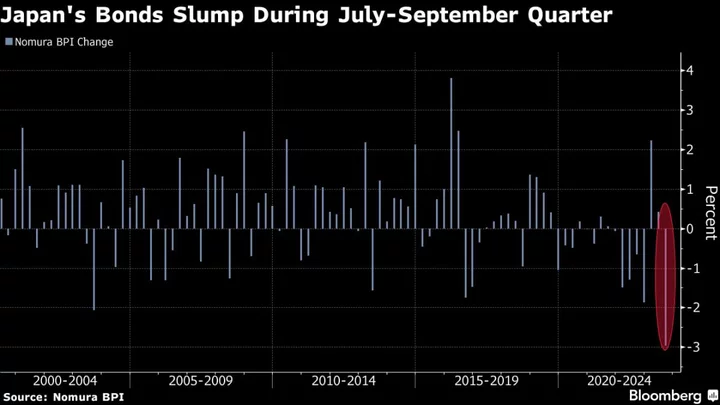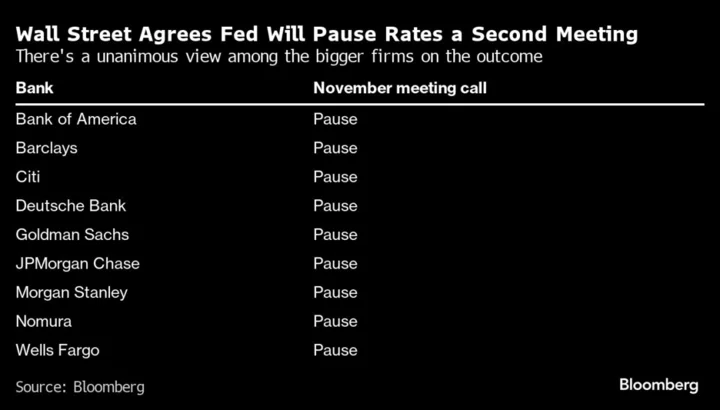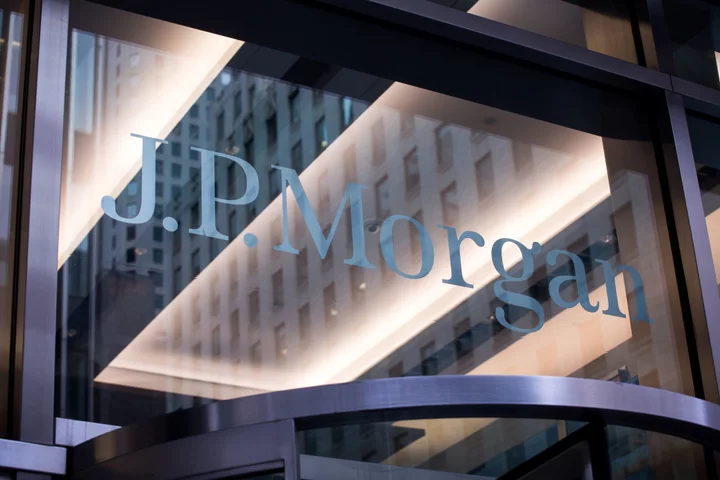Alphabet Inc. is facing a new and, by most accounts, welcome problem — how to spend its rapidly expanding pile of cash.
The Google owner generated nearly $29 billion in cash in the second quarter after cutting thousands of jobs and efforts to stanch losses in its various moonshot projects. That left Alphabet with cash and short-term marketable securities of about $118 billion, more than any other company in the Nasdaq 100 Stock Index aside from Apple Inc.’s total of about $167 billion.
However, unlike Apple, which aims to give back most of its cash to shareholders via stock buybacks and dividends, Alphabet has a less clearly-defined capital return strategy, leaving investors seeking more detail on its plans.
“We haven’t really had to address this issue with Alphabet in the past because they hadn’t been as prolific with generating this kind of cash,” Daniel Morgan, senior portfolio manager at Synovus Trust Co. said in an interview. His funds own Alphabet shares.
Generally, investors aren’t fond of companies sitting on large amounts of cash and expect the money to be invested for better returns or given back to shareholders.
The top three cash generators in the Nasdaq 100 — Alphabet, Apple and Microsoft Corp. — brought in a combined $84 billion in the last quarter, the biggest haul for any such non-holiday period in history, according to data compiled by Bloomberg.
Alphabet has stepped up buybacks and expanded its repurchase authorization to $70 billion in April. But last quarter, the firm spent $15 billion on its own shares, barely half of the cash it brought in.
By contrast, Apple in the last five fiscal years has returned almost $5 billion more than the record $454 billion in cash it generated.
In July, Alphabet said Ruth Porat, who has served as chief financial officer since 2015, will assume a newly created role of president and chief investment officer.
Alphabet doesn’t pay a dividend like Apple and Microsoft. And in contrast with Microsoft, which agreed to pay $69 billion for video game maker Activision Blizzard Inc. last year, Alphabet has shied away from big acquisitions.
Read: Activision, Microsoft Extend Closing on $69 Billion Deal
Even if executives wanted to, Alphabet may not be able to pull off a big acquisition given heightened regulatory scrutiny. Microsoft’s road to closing its Activision deal has been rocky and Amazon.com Inc.’s acquisition of Roomba maker iRobot Corp. is still being probed by regulators.
“Having the ability to make a big splash the way Microsoft is doing with Activision is difficult given the regulatory environment,” said Angelo Zino, senior equity analyst at CFRA Research. Alphabet is more likely to continue to make incremental deals “at a very small level,” he said.
To Synovus Trust’s Morgan, it might be wiser for Alphabet to make more strategic investments like Microsoft has done with ChatGPT owner OpenAI. This would instantly boost shareholder value and help the company gain recognition for making inroads into industries that it’s not traditionally been as strong in, he said.
But for now, share buybacks seem like the most popular tool being implemented to return cash to shareholders at big tech firms that bring in tens of billions in earnings every quarter.
“Although Alphabet could always consider initiating a small dividend, we think it’s more likely to stick to the buyback approach,” Zino said. “A dividend could send a perception that growth opportunities may not be as strong.”
Tech Chart of the Day
Over the last decade, Apple has embarked on the biggest share repurchase program on Wall Street, resulting in a steady decline in its outstanding shares. The company has bought back more than $80 billion in stock over the last 12 months — the most by any US company, according to data compiled by Bloomberg.
Top Tech Stories
- A US cybersecurity advisory panel will investigate risks in cloud computing, including Microsoft Corp.’s role in a recent breach of government officials’ email accounts by suspected Chinese hackers, according to two people familiar with the matter.
- California regulators voted in favor of robotaxi operators expanding their paid driverless services in the city of San Francisco, a major milestone toward commercializing the technology.
- An investment by Amazon.com Inc. in chip designer Arm Ltd. would highlight the potential for both to profit from generative artificial intelligence, a market Bloomberg Intelligence sees topping $1.3 trillion by 2032.
- Alibaba Group Holding Ltd. returned to growth across all its main divisions, defying China’s economic turbulence to take a first step toward a long-awaited comeback after more than a year of malaise.
- Semiconductor Manufacturing International Corp. shares drop in Hong Kong after results, while the company’s co-Chief Executive Officer Zhao Haijun tells analysts on a call that the chip industry has troughed but recovery is weaker than expected due to economic headwinds.
Earnings Due Friday
- Premarket
- N/A
- Postmarket
- Constellation Software
--With assistance from Julia Love, Tom Contiliano, Matt Turner and John Viljoen.









